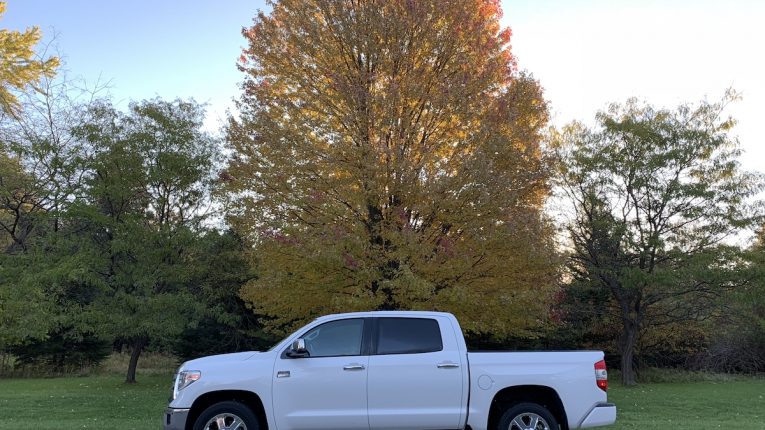
Getting Back On The Road: 8 Tips For The Nervous Driver
You could have walked away from being in a car accident without a mark on you, but that doesn’t mean that you will feel confident enough to get back behind the wheel right away. Being in a car accident is scary. The fear that you felt may not leave you for some time and you may not be ready to get back behind the wheel of the car for a while – you may not want to get into any car for a while!
Accidents don’t just affect you physically, it’s going to affect you psychologically. Sometimes, life is going to suck and throw you a curveball like that, and it can be when you’re not expecting it to happen that it occurs. You can become more cautious on the road after an accident, but those nerves that you carry with you into your car can become a real issue. The problem is that nervousness could be detrimental to your position on the road and put you in a position where you are not as great as you think. This just isn’t what you need – you need to feel confident and excited about getting back in your car. Even if the accident wasn’t your fault, and you were paying attention on the road, the damage that you sustain can be life changing.
You want to make sure that you can get out there and drive again. You may be waiting on a payment for compensation from a truck accident lawyer that you’ve been dealing with and you’re using that time to get your head straight so you can plan to buy a new car. After all, the last one was a write-off, right? You need to use the time that you have off and recuperating to gather yourself enough to get back behind the wheel, onto the road and back into your normal life again. Some drivers become more cautious on the road and others will start to feel more anxious. The key is to check out these tips and make sure that you can feel ready to get out there again.
Write Down The Circumstances Of The Accident.
Sometimes, sitting down and writing out the circumstances of the accident can make a massive difference to the way that you feel about it. Our brains are amazing: they filter out the information that they do not want us to remember until we are emotionally sound enough to remember them. This is where we need to think about dealing with those memories and feelings. Get a notebook specifically for this exercise, and write down everything that you remember from the time of the accident. It can help you to face the trauma that you felt and deal with the emotions. It’s only then you can truly move forward.
Share Your Experience. This is the time in your life that you really want to lean on your family and friends. You want to make sure that you tell them how you felt, about your fears and your worries. If necessary, book an appointment to see a therapist and talk about the accident. You need to be constructive, and discuss the event with the emphasis on how you survived. The focus should be on the fact that you are alive, breathing and able to get back into a car if you wanted to! Event discussion can help you to rationalise the experience, which also allows you to move on.
Bring Support. Getting into a car again requires you to have the right support. The calmer you feel behind the wheel, the better you can turn the key and start the car. Once you’re up and running, you’re more likely to feel comfortable. Plus, having a friend in the car supporting you emotionally can make a huge difference to your driving experience all over again. You can ask your supporter to take over and drive if you cannot continue. It may not just be once, either, as you need to consider how confident that you feel behind the wheel. If you’re not ready, you’re not ready. It’s better to keep going within your comfort levels, than push past the point of comfort and be in another accident.
Go Slowly. Not literally slowly, but don’t go for a long road trip when it comes to getting back on the road. Short, undemanding drives are the best way to go to ensure that you feel calm and ready to be on the road in the first place. Professional treatment will always tell you about taking the stressful situations slow so that you can relax into your driving again. In the meantime, you should keep speaking to those around you and make sure you are feeling calm and relaxed where you can.
Go Back To The Crash Site. Avoiding the site where you crashed may be tempting, but the best thing that you can do is ensure that you go back and make peace with the area. You cannot feed your anxiety with avoidance, as all that this will do is make you fearful of ever doing any driving for yourself again.
Consider A Driving Course. You may have been out of action on the road for some time, and that’s okay. What’s not okay though, is getting back on the road when you’re not ready to. Going on a driving course can make you feel confident and calm when you choose to get back out there, and defensive driving courses can help drivers like you to recognise and analyse the situations that may become dangerous. If you’ve gone on a course – even as a long-term driver – then you can help to bolster your confidence.
Give Yourself A Break. Putting too much pressure on yourself to be on the road can be detrimental to your progress after an accident. Don’t blame yourself for the accident; even those who aren’t at fault of the accident have a tendency to place blame on themselves. This is only going to make your fears worse. Be gentle with yourself and do whatever it takes to feel relaxed. You can relax your mind and heal both mentally and physically.
Stick With It. The last tip you need is to just stick with it. If you choose to get back onto the road after an accident, don’t stop doing it. You may not be back to full confidence after one trip, and it could take some time to be okay with getting in your car again without a second thought. Don’t be hard on yourself about it, but don’t give up. Get through as many test runs as possible with a new car so that you can stay confident with your newfound car on the road.
Being in an accident can be harrowing. There’s nothing quite as scary as post-accident flashbacks, and these flashbacks can lead to PTSD and issues with living hallucinations. It’s why it’s so important to get the right help lined up with therapy. Struggling mentally is hard and taking time to heal and feel better is important if you want to get back on the road in a positive way. You should aim to deal with the crash in the best possible way, and getting back on the road is going to be a part of that. Take the time to get the right support and treatment and you can ensure that you let go of your fear in the right way. Speak to your doctor and get the right help as soon as you can.










[…] of driving lessons is to be able to drive. But driving lessons on their own won’t get you a full driving license. You will need to pass a driving test to be qualified. The process has two stages, […]
[…] fresh drivers who are keen to build belief in their abilities in the car for a happy and enjoyable road […]